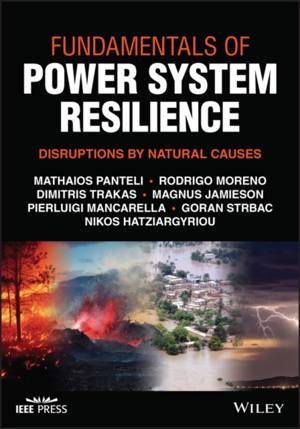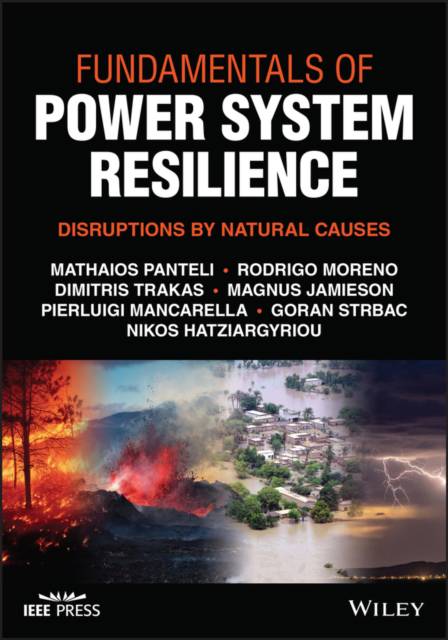
- Retrait gratuit dans votre magasin Club
- 7.000.000 titres dans notre catalogue
- Payer en toute sécurité
- Toujours un magasin près de chez vous
- Retrait gratuit dans votre magasin Club
- 7.000.0000 titres dans notre catalogue
- Payer en toute sécurité
- Toujours un magasin près de chez vous
Fundamentals of Power System Resilience
Disruptions by Natural Causes
Nikos Hatziargyriou, Magnus Jamieson, Pierluigi Mancarella, Rodrigo Moreno, Mathaios Panteli, Goran Strbac, Dimitris TrakasDescription
Comprehensive resource focusing on natural hazards and their impact on power systems, with case studies and tutorials included
Fundamentals of Power System Resilience is the first book to cover the topic of power system resilience in a holistic manner, ranging from novel conceptual frameworks for understanding the concept, to advanced assessment and quantifying techniques, to optimization planning algorithms and regulatory frameworks towards resilient power grids. The text explicitly addresses the needs and challenges of current network planning and operation standards and examines the steps and standard amendments needed to achieve low-carbon, resilient power systems. Practically, it provides frameworks to assess resilience in operation and planning and relevant quantification metrics.
Case studies from around the world (real data and project developments as well as simulations) including windstorms, wildfires, floods, earthquakes, blackouts, and brownouts, etc. are included, with applications from the UK, Chile, Australia, and Greece. The text is further supported by problem, solutions, and tutorial examples for classrooms. Lastly, a companion website includes digital files with codes to run the book's examples in open-source software.
In Fundamentals of Power System Resilience, readers can expect to find specific information on:
- Classical reliability standards, covering the changing energy landscape and limitations of existing reliability-driven network planning and operation standards
- How resilience is interpreted in the power systems community, and characterizations and differentiation of threats
- Spatiotemporal impact assessment of external shocks on power systems, trapezoid applications to different events of different time-scales, and AC cascading models for resilience applications
- Conventional approaches to asset failure data representation and modeling of the relationship between weather/asset outages
Fundamentals of Power System Resilience provides fundamental knowledge of the subject and is an excellent supplementary reference for final undergraduates and postgraduate students due to its mix of basic and advanced content and tutorial-like exercises. It is also essential for regulators and practitioners for shaping the future resilient power systems.
Spécifications
Parties prenantes
- Auteur(s) :
- Editeur:
Contenu
- Langue:
- Anglais
Caractéristiques
- EAN:
- 9781119815990
- Date de parution :
- 12-11-25
- Format:
- Livre relié
- Format numérique:
- Genaaid
- Poids :
- 666 g

Les avis
Nous publions uniquement les avis qui respectent les conditions requises. Consultez nos conditions pour les avis.






